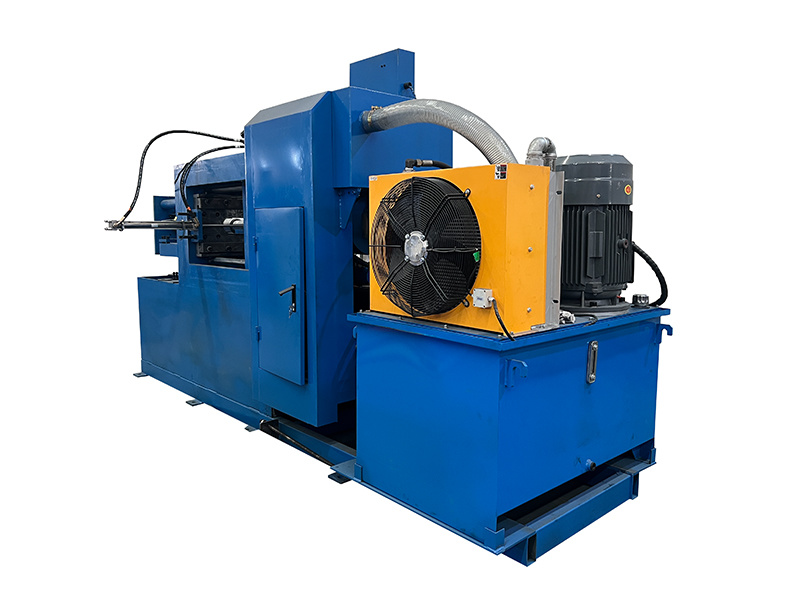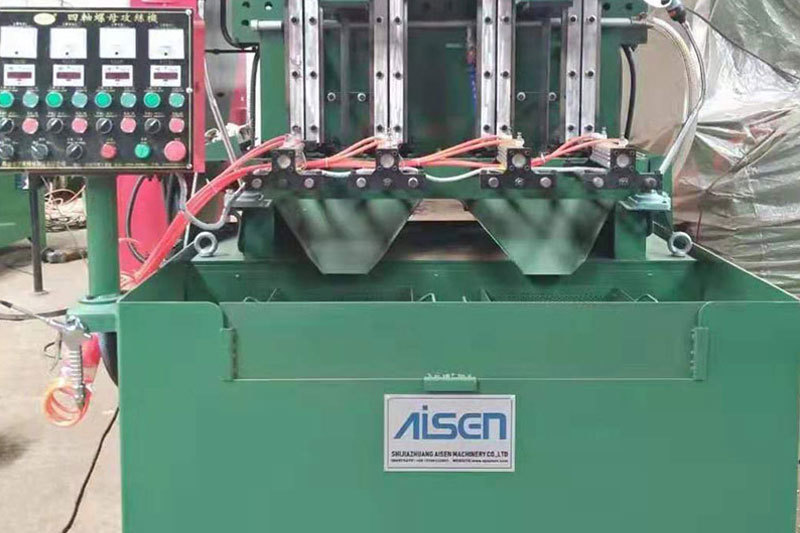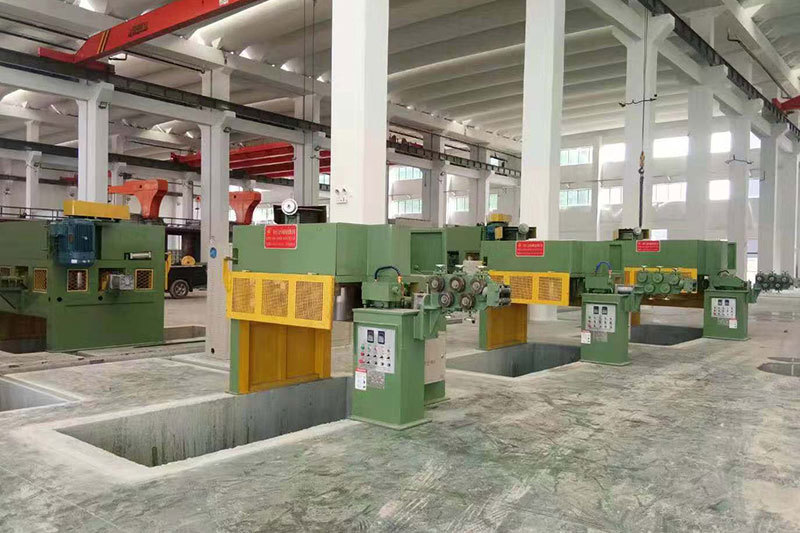Understanding the Role and Advantages of Bolt Hot Forging Machines in Manufacturing
Summary:
In the realm of manufacturing, the role of Bolt Hot Forging Machines cannot be overstated. These machines are pivotal in converting metal into various shapes and sizes through a process that involves high temperature and pressure. The hot forging process allows for the manipulation of metal, making it easier to form complex geometries that are essential in industries such as automotive, aerospace,

In the realm of manufacturing, the role of Bolt Hot Forging Machines cannot be overstated. These machines are pivotal in converting metal into various shapes and sizes through a process that involves high temperature and pressure. The hot forging process allows for the manipulation of metal, making it easier to form complex geometries that are essential in industries such as automotive, aerospace, and heavy machinery.
One of the key advantages of using a Bolt Hot Forging Machine is the improvement in material properties. When metal is heated and then forged, it undergoes significant changes at the molecular level. The process refines the grain structure of the metal, enhancing its strength and durability. This means that parts produced through hot forging can often withstand higher stresses and strains, making them ideal for critical applications.
Additionally, Bolt Hot Forging Machines can achieve high production efficiency. The ability to produce large quantities of parts quickly while maintaining precision is a significant benefit for manufacturers. The process allows for less material waste compared to other forming methods, as the metal can be reused or recycled. This not only optimizes resource use but also contributes to more sustainable manufacturing practices, aligning with the growing trend towards environmentally friendly processes.
The versatility of Bolt Hot Forging Machines also plays a critical role in their widespread use. They can be utilized for a variety of metals, including steel, aluminum, and titanium. This adaptability enables manufacturers to meet diverse customer demands across different sectors. Whether producing fasteners, automotive components, or specialized machinery parts, these machines can be tailored to meet specific requirements.
Moreover, advancements in technology have led to the development of more sophisticated Bolt Hot Forging Machines that incorporate automation and enhanced control systems. These innovations allow for greater precision and consistency in production, minimizing the risk of defects and ensuring high-quality output. By investing in modern forging technology, manufacturers can stay competitive in an ever-evolving market.
In summary, the Bolt Hot Forging Machine is an integral asset in the manufacturing process, offering substantial benefits in terms of material properties, production efficiency, versatility, and technological advancements. Understanding the capabilities and advantages of these machines can help industry professionals make informed decisions about their manufacturing strategies, ultimately leading to improved product quality and greater operational efficiency. Embracing the potential of hot forging technology can position manufacturers for success in today’s fast-paced industrial landscape.
One of the key advantages of using a Bolt Hot Forging Machine is the improvement in material properties. When metal is heated and then forged, it undergoes significant changes at the molecular level. The process refines the grain structure of the metal, enhancing its strength and durability. This means that parts produced through hot forging can often withstand higher stresses and strains, making them ideal for critical applications.
Additionally, Bolt Hot Forging Machines can achieve high production efficiency. The ability to produce large quantities of parts quickly while maintaining precision is a significant benefit for manufacturers. The process allows for less material waste compared to other forming methods, as the metal can be reused or recycled. This not only optimizes resource use but also contributes to more sustainable manufacturing practices, aligning with the growing trend towards environmentally friendly processes.
The versatility of Bolt Hot Forging Machines also plays a critical role in their widespread use. They can be utilized for a variety of metals, including steel, aluminum, and titanium. This adaptability enables manufacturers to meet diverse customer demands across different sectors. Whether producing fasteners, automotive components, or specialized machinery parts, these machines can be tailored to meet specific requirements.
Moreover, advancements in technology have led to the development of more sophisticated Bolt Hot Forging Machines that incorporate automation and enhanced control systems. These innovations allow for greater precision and consistency in production, minimizing the risk of defects and ensuring high-quality output. By investing in modern forging technology, manufacturers can stay competitive in an ever-evolving market.
In summary, the Bolt Hot Forging Machine is an integral asset in the manufacturing process, offering substantial benefits in terms of material properties, production efficiency, versatility, and technological advancements. Understanding the capabilities and advantages of these machines can help industry professionals make informed decisions about their manufacturing strategies, ultimately leading to improved product quality and greater operational efficiency. Embracing the potential of hot forging technology can position manufacturers for success in today’s fast-paced industrial landscape.
Latest News
AISEN Four axis nut tapping machine ready for shipment to Russia
Four axis nut tapping machine for DIN934 M8,M10 Standard hex nut is ready for shipping to Russia by land transportation.
AISEN machinery inverted wire drawing machine
We hope to cooperate with more customers for mutual development and benefits. You are welcome to contact us









